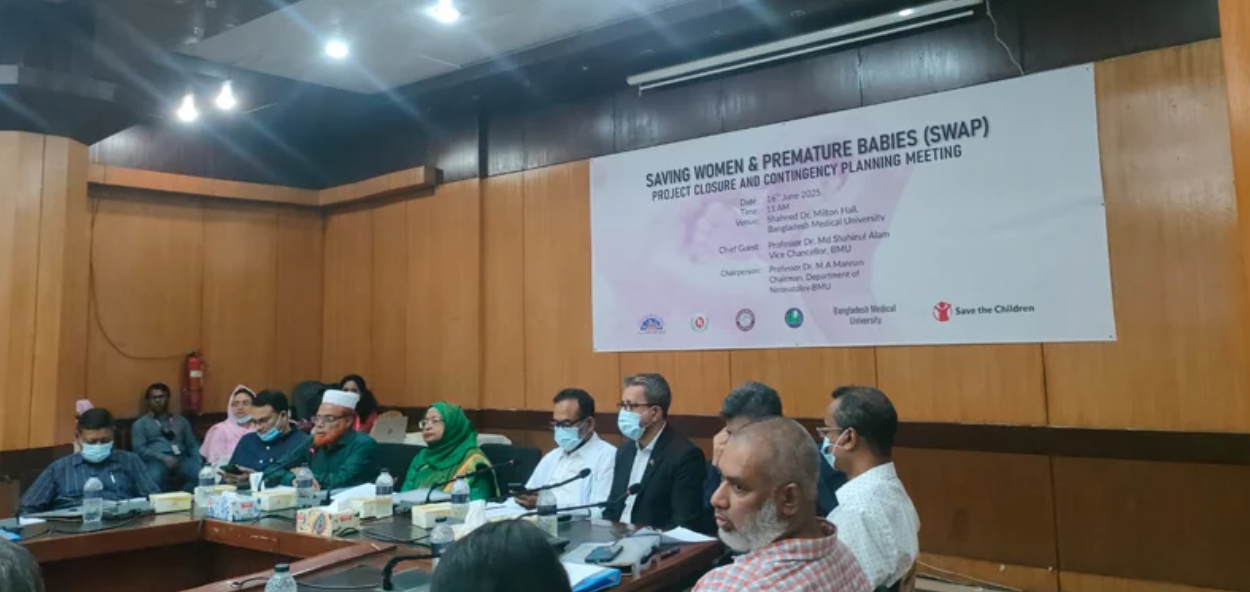In Bangladesh, one baby in five is born prematurely
Sumi Begum's daughter died just four days after she was born prematurely. In the country, 600,000 babies are born prematurely every year, the highest percentage in the world. The Bangladesh Medical University discussed the issue with Save the Children. Better family training, improved services, and awareness-raising are the proposed interventions.
Dhaka (AsiaNews) – Sumi Begum, a young mother from a village near Savar, Dhaka district, gave birth to her daughter Ayesha two months before the due date.
Weighing just 1.4 kg, the baby was struggling to breathe, and the local clinic did not have the necessary equipment such as an incubator or oxygen.
Wrapped in warm clothes and hope, Ayesha died in her mother's arms on the fourth day of her life from an infection and poorly developed lungs.
“I didn’t even know what premature birth meant,” said the mother, who is now sharing her story to raise awareness among other women in her community.
Like Sumi, thousands of mothers face similar tragedies in Bangladesh. Every year, around 600,000 babies are born prematurely in the South Asian country, that is one in five.
These newborns are highly vulnerable to complications from incomplete gestation (preterm birth), which often leads to their death. For experts, preventing premature births is an urgent priority to curb neonatal mortality.
This concern was addressed at a recent meeting at Shaheed Dr Milton Hall, organised by the Department of Neonatology at Bangladesh Medical University (BMU) and Save the Children.
Associate Professor Sadeka Chowdhury Moni delivered the welcome remarks, while her colleague Dr Ismat Jahan gave the keynote address.
She explained that the Saving Women and Premature Babies (SWAP) project provides maternal and neonatal care in five hospitals across the country. So far, it has treated 165,000 pregnant mothers and 87,000 newborns, and trained 1,500 health workers.
Key interventions like the Vayu Bubble CPAP (non-invasive ventilation that does not require electricity), family-centred education, kangaroo mother care practice, and neonatal resuscitation have significantly improved survival rates.
Professor Abdul Mannan, chair of the Department of Neonatology, noted again that of the three million babies born each year in Bangladesh, 20 per cent are premature. This is the highest rate in the world.
Although neonatal mortality has fallen to 20 per 1,000 live births, reaching the target of 12 by 2030 remains a challenge, requiring continued synergy and commitment.
Professor Tabassum Parveen, chair of fetomaternal medicine at the BMU, noted that preterm births have remained consistently high over the past decade, and little research has been done to address the root causes.
Contributing factors include poor maternal health, malnutrition, lack of prenatal care, hypertension, diabetes, early pregnancy, and substance abuse.
She called for stronger awareness campaigns, improved maternity services and enhanced maternal healthcare to reverse the trend.
Speaking as the chief guest at the meeting, BMU Vice Chancellor Professor Shahinul Alam said that family-centred care (FCC) for newborns, implemented through the SWAP project, is significantly contributing to saving the lives of mothers and babies.
“If this method is applied scientifically on a broader scale, it can bring about transformative changes across the entire healthcare system,” he stated.
Shondha Peris, a Catholic midwife from Natore who has received training on safe motherhood from Caritas Bangladesh, also shared her perspective with AsiaNews.
“In Bangladesh, a lack of awareness about maternal health during pregnancy is a major factor behind the deaths of premature babies,” she explained.
“The main causes include respiratory distress syndrome, infections such as sepsis and pneumonia, birth asphyxia, and complications from low birth weight. These are often worsened by limited access to quality neonatal care and inadequate medical facilities.”
Peris finally brought the focus back to the necessary solutions.
“We can reduce premature baby deaths by improving neonatal care with more incubators and trained healthcare workers, ensuring timely treatment of infections, and promoting skilled birth attendance,” she said.
“Expanding access to maternal health services and raising community awareness about prenatal care are also essential,” she added.
10/11/2018 09:58
24/10/2019 17:56
24/10/2022 15:30







.png)










